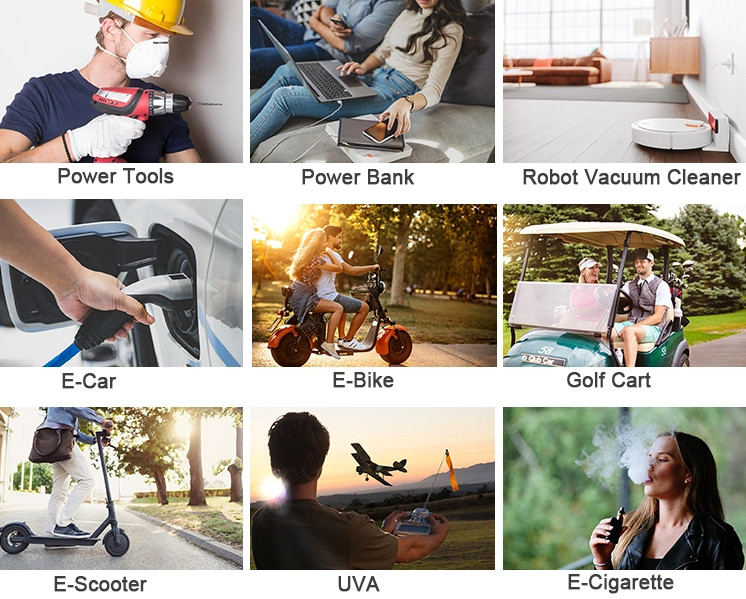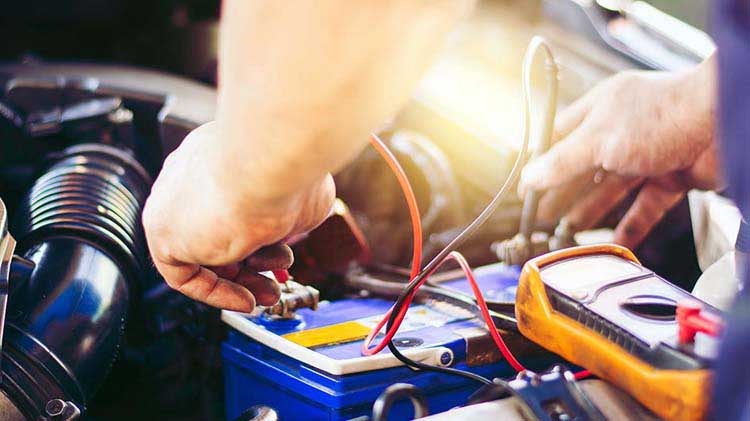Revolutionizing the Energy Industry: The Impact of Smart Grids and Lithium Batteries
In recent years, there has been a growing concern about the need to transition towards cleaner and more sustainable sources of energy. With the increasing demand for electricity and the urgency to reduce greenhouse gas emissions, the energy industry has been forced to explore new technologies and innovations. Two of the most promising advancements that are revolutionizing the energy industry are smart grids and lithium batteries.
Smart grids are a modernized version of the traditional electrical grid system. They incorporate advanced communication and automation technologies to optimize the generation, distribution, and consumption of electricity. By utilizing a network of sensors, meters, and control devices, smart grids enable real-time monitoring and management of energy flow. This allows for better coordination between power plants, renewable energy sources, and consumers, resulting in improved efficiency and reliability.
One of the key benefits of smart grids is their ability to integrate renewable energy sources into the grid. Traditional grids were designed to accommodate centralized power plants that rely on fossil fuels. However, with the increasing adoption of solar and wind energy, the generation of electricity is becoming more decentralized. Smart grids are capable of handling the variability and intermittency of renewable energy sources by dynamically adjusting the distribution and consumption of electricity. This not only reduces reliance on fossil fuels but also promotes the use of clean energy.
Lithium batteries, on the other hand, have emerged as a game-changer in the energy storage sector. Lithium-ion batteries, in particular, have gained popularity due to their high energy density, long cycle life, and fast charging capabilities. These batteries are widely used in portable electronic devices, electric vehicles, and now, in grid-scale energy storage systems.
The integration of lithium batteries into the energy industry has several advantages. Firstly, it enables better utilization of renewable energy. Energy generated from solar panels or wind turbines can be stored in lithium batteries during periods of low demand and released during peak hours. This reduces the need for backup power plants fueled by fossil fuels and allows for a more efficient use of clean energy.
Secondly, lithium batteries enhance grid stability and reliability. They provide a reliable source of power during blackouts or grid failures, ensuring uninterrupted electricity supply to critical infrastructure and residential areas. Additionally, they help balance the supply and demand of electricity, reducing the risk of power outages and grid instability.
Furthermore, lithium batteries facilitate the electrification of transportation. As the world moves towards a greener future, the demand for electric vehicles is increasing rapidly. Lithium batteries enable long-range driving, fast charging, and improved performance of electric vehicles, making them a viable alternative to traditional internal combustion engine vehicles. This not only reduces greenhouse gas emissions but also decreases our dependence on fossil fuels.
Despite these numerous benefits, there are still challenges that need to be addressed for the widespread adoption of smart grids and lithium batteries. One major hurdle is the cost. While the prices of lithium batteries have been decreasing steadily, they still remain relatively expensive compared to traditional energy storage options. Additionally, the installation and infrastructure costs associated with smart grids can be significant.

Another challenge is the need for regulations and policies that support the integration of these technologies. Governments and regulatory bodies need to incentivize the deployment of smart grids and lithium batteries through financial incentives and favorable policies. This will encourage investment in research and development, promote innovation, and accelerate the transition towards a cleaner and more sustainable energy future.
In conclusion, smart grids and lithium batteries are revolutionizing the energy industry by enabling the integration of renewable energy sources, enhancing grid stability, and promoting the electrification of transportation. While there are challenges to overcome, the potential benefits are significant. With continued advancements in technology, increased investment, and supportive policies, smart grids and lithium batteries have the power to reshape the energy landscape and pave the way towards a more sustainable future.
-
 Lithium Iron Phosphate (LiFePO4) batteries are a type of rechargeable battery that have been gaining popularity in recent years. These batteries are known for their high energy density, long life cycle, and safety. As a result, they are commonly used in a variety of applications, including electric vehicles, solar energy storage systems, and portable electronics. One of the main...Citeşte mai mult
Lithium Iron Phosphate (LiFePO4) batteries are a type of rechargeable battery that have been gaining popularity in recent years. These batteries are known for their high energy density, long life cycle, and safety. As a result, they are commonly used in a variety of applications, including electric vehicles, solar energy storage systems, and portable electronics. One of the main...Citeşte mai mult -
 Golf is a game that requires precision, skill, and focus. Whether you are a professional golfer or someone who enjoys the occasional round with friends, having a reliable source of energy for your golf cart is essential to keep the game running smoothly. This is where the golf cart battery comes in. A golf cart battery is responsible for...Citeşte mai mult
Golf is a game that requires precision, skill, and focus. Whether you are a professional golfer or someone who enjoys the occasional round with friends, having a reliable source of energy for your golf cart is essential to keep the game running smoothly. This is where the golf cart battery comes in. A golf cart battery is responsible for...Citeşte mai mult -
 Introduction The demand for energy storage has been increasing rapidly in recent years due to the widespread adoption of renewable energy sources and the need for efficient electric vehicles. One technology that has been at the forefront of this revolution is the lithium-ion battery. This article will explore the significance of lithium-ion batteries in revolutionizing energy storage technology. ...Citeşte mai mult
Introduction The demand for energy storage has been increasing rapidly in recent years due to the widespread adoption of renewable energy sources and the need for efficient electric vehicles. One technology that has been at the forefront of this revolution is the lithium-ion battery. This article will explore the significance of lithium-ion batteries in revolutionizing energy storage technology. ...Citeşte mai mult -
 China's Lifepo4 battery industry has been growing rapidly in recent years, driven by the increasing demand for rechargeable batteries with high energy density and long cycle life. Lifepo4 batteries, which are a type of lithium-ion battery, have become a popular choice for applications that require high performance and reliability, such as electric vehicles, renewable energy systems, and portable electronics. ...Citeşte mai mult
China's Lifepo4 battery industry has been growing rapidly in recent years, driven by the increasing demand for rechargeable batteries with high energy density and long cycle life. Lifepo4 batteries, which are a type of lithium-ion battery, have become a popular choice for applications that require high performance and reliability, such as electric vehicles, renewable energy systems, and portable electronics. ...Citeşte mai mult -
 Introduction In recent years, the demand for efficient and reliable energy storage solutions has increased significantly. As the world transitions towards renewable energy sources and electric vehicles, the need for advanced battery technologies has become more crucial than ever. One such technology that is revolutionizing energy storage is the mobile digital lithium batteries. These batteries have garnered attention for...Citeşte mai mult
Introduction In recent years, the demand for efficient and reliable energy storage solutions has increased significantly. As the world transitions towards renewable energy sources and electric vehicles, the need for advanced battery technologies has become more crucial than ever. One such technology that is revolutionizing energy storage is the mobile digital lithium batteries. These batteries have garnered attention for...Citeşte mai mult -
 In today's fast-paced and technology-driven world, the demand for efficient and sustainable energy sources is on the rise. As traditional energy grids struggle to keep up with the increasing energy demands, the concept of smart grids has gained significant attention. Smart grids aim to optimize energy distribution and consumption through advanced technologies and innovative solutions. One such solution that is...Citeşte mai mult
In today's fast-paced and technology-driven world, the demand for efficient and sustainable energy sources is on the rise. As traditional energy grids struggle to keep up with the increasing energy demands, the concept of smart grids has gained significant attention. Smart grids aim to optimize energy distribution and consumption through advanced technologies and innovative solutions. One such solution that is...Citeşte mai mult -
 Introduction: Batteries play a crucial role in powering various devices and systems. From smartphones to electric vehicles, the demand for high-performance batteries is on the rise. As a result, the need for efficient battery chargers has become paramount. The 48V LiFePO4 battery charger has emerged as a reliable and efficient charging solution for high-performance batteries. This article delves into the...Citeşte mai mult
Introduction: Batteries play a crucial role in powering various devices and systems. From smartphones to electric vehicles, the demand for high-performance batteries is on the rise. As a result, the need for efficient battery chargers has become paramount. The 48V LiFePO4 battery charger has emerged as a reliable and efficient charging solution for high-performance batteries. This article delves into the...Citeşte mai mult

